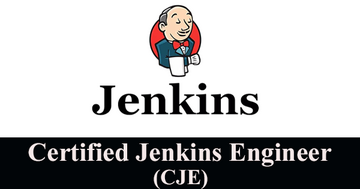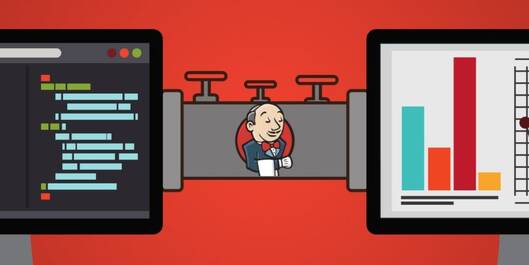How can we become Certified Jenkins Engineers (CJE)?
What is a Jenkins?

Friends as you already know that software development is a very huge and heavy process. There are so many innumerable moving parts of it. In order to improve the development process, we utilize the methodology of DevOps and its tools. In DevOps, there are so many phases. This is one of the most favorable phases as continuous integration which is willing to help you in coming all together with the parts of software development and manages all of them. Therefore, there is a very popular tool named ‘Jenkins’.
Jenkins is an open-source automation tool. Now, we will learn about continuous integration and using it in Jenkins. It is a phase of DevOps in which we are continuously doing integrate all of your software development processes in parts and take parts to combine all together. Well, we say combine but it actually controls through continuous integration.
What are the benefits of Jenkins?
Take a brief history of Jenkins. Jenkins was originally developed in 2004 by the sun microsystems company under the name Hudson. It had slowly gained popularity and had become one of the best developing tools out there. After this, the project was later named Jenkins when oracle bought microsystems and decided to keep Hudson & Jenkins as separate entities. It is now one of the most popular CI/CD tools in use out there. As we can see certain benefits are associated with:

- Jenkins is a community tool – its open source and has a very large community that contributes to it regularly.
- Its free so you don’t have to accrue anymore subscription costs
- Easy for the developers to find and fix issues.
- Improves code quality, minimize defects.
Why we should learn Jenkins?
After getting the benefits of Jenkins. Now, looking for the learning process. We are learning for using it. We use it for seeing widely use through DevOps team, build and release teams, and dev teams. Due to it provides feedback loop back to the developer and fix the errors. It developer has fresh in the memory for quick error. It can publish every build of your software and has already gone through automation testing. Further uses associates with this such as easy interface, easy to navigate, easy document and example, free and open-source, plugin and functionality, and users around the world.
How our Jenkins course/training would help?

Through the course tutorial, we get intact knowledge and practices that help you in working along with the Jenkins. It allows you to create build jobs on certain kinds of projects such as freestyle projects, pipelines, multi-configuration projects, multi-branch pipelines, folders, and GitHub organizations. After this we are getting benefitted from tutorials in two items, one is the Jenkins freestyle job it comes under many configures as general, source code management, build triggers, build environment, build, and post-build actions. Another is the pipeline, it comes with certain stages as CI/CD pipeline, Jenkins file, and Jenkins pipeline. I hope this will make you clearer to understand about the tool, their automation process, and software development process connections with different phases by using different plugins depending upon your needs.